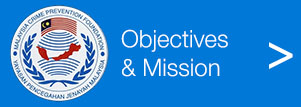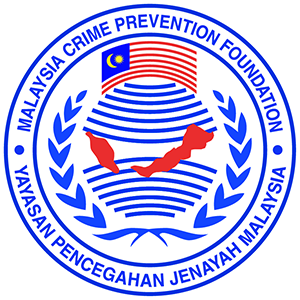
As Malaysia continues towards institutional reform and national integrity, it must close the gap between the noise of arrests and the silence of resolution.
In recent years, Malaysians have witnessed an encouraging uptick in enforcement action against white-collar crimes, crimes that for too long operated above the reach of law.
The police, the Malaysian Anti-Corruption Commission and other law enforcement bodies have acted against a growing list of well-connected and titled individuals – Tan Sris, Datuk Seris, Datuks, and even holders of honorary PhDs.
These cases often involve complex frauds – Ponzi schemes disguised as investment opportunities, elaborate money-laundering networks, and criminal breaches of trust involving tens or hundreds of millions of ringgit.
These individuals are arrested, remanded, and news of them splashed across the front pages. For a moment, justice seems tangible and progress appears to be underway.
But, then, silence. No verdicts. No formal charges. No announcements of case closure. The public is left to wonder what became of these alleged white-collar criminals. Were they charged? Were they convicted? Or were their cases quietly dropped?
This gap between arrest and resolution is more than a communications oversight; it is a structural weakness that undermines public confidence in our institutions and the rule of law.
In civil democratic societies, law enforcement and prosecutorial transparency is essential to maintaining trust. In Malaysia, however, the lack of communication after high-profile arrests leads to the damaging perception that justice for the powerful is different from justice for the ordinary citizen.
When there is no closure nor visible outcome, assumptions fill the void. Is the system incapable of prosecuting its elite?
In such a climate, even genuine legal outcomes, such as a case being dropped due to lack of evidence or a legal technicality, are seen with suspicion. Public distrust of authority grows deeper, and institutions like the MACC and the police suffer reputational damage despite their good work.
The success of enforcement agencies depends on more than operations and legal processes; it hinges on public legitimacy. That legitimacy erodes each time a high-profile arrest fades from public record with no known resolution.
This also has implications for Malaysia’s investment climate and international image. A country perceived to lack transparency in its criminal justice system, especially involving financial and corporate crimes, risks losing investor confidence. Integrity and the rule of law are major considerations for multinational firms evaluating risk.
Malaysia is not alone in facing the challenge of prosecuting powerful elites. However, other countries have developed institutional norms that help preserve public trust through transparency and accountability.
In the US, the justice department maintains a public press release portal where every major indictment, charge and sentencing is announced, sometimes even with supporting documents like plea agreements or affidavits.
The court system operates on Pacer, an online system where journalists and the public can access case updates in real time. High-profile financial criminals from Bernie Madoff to Enron executives were documented throughout the legal process, not just at the point of arrest.
The UK’s Serious Fraud Office publishes not only press releases but case timelines on its website, outlining the current stage of each high-profile case. This is supplemented by annual reports to Parliament and regular appearances before select committees to explain prosecutorial decisions, especially in complex or politically sensitive matters.
In Australia, transparency is mandated by law. The Crime and Corruption Commission in Queensland, for example, is required to publish statistics, updates and findings, and holds public inquiries when appropriate. Public trust is maintained through parliamentary oversight, media engagement and judicial reviews of major cases.
These best practices are not just bureaucratic procedures; they are safeguards of public confidence in the integrity of institutions.
To strengthen transparency and accountability in the handling of high-profile white-collar crime, Malaysia must institutionalise better practices.
A digital portal should be developed where the status of major cases involving public figures can be tracked: arrests, charges, trials, appeals and conclusions. This portal must be accessible to the public and updated regularly.
Just as arrest announcements are publicised, so too must case outcomes be communicated, whether they end in conviction, acquittal, or withdrawal. Where a case is dropped, the rationale must be made public to avoid speculation.
Parliament’s relevant select committees such as those on governance, law and integrity should be empowered to summon updates from the police, the MACC, and the Attorney-General’s Chambers on the status of investigations or prosecutions involving prominent individuals. These hearings should be made public when possible.
Investigative journalism and civil society watchdogs such as C4, Transparency International Malaysia, and interest groups must be empowered through access to information and protection of press freedom. Their work is essential in keeping the spotlight on these cases long after the headlines have faded.
Ultimately, the public is not asking for privileged information or operational strategies. It is asking for reassurance that justice applies equally to all Malaysians rich or poor, titled or untitled without fear or favour.
As Malaysia continues its journey towards institutional reform and national integrity, it must close the gap between the noise of arrests and the silence of resolution. Without transparency, there can be no accountability. And without accountability, the rule of law becomes just another slogan.
The credibility of our institutions depends not only on what they do, but how openly they show they are doing it. Justice that disappears from public view is justice denied not just to the accused, but to the rakyat of Malaysia. Rehabilitation is the first step before any major reform.
This article first appeared on FMT.
Past Events
- MCPF Penang pays a Courtesy Visit to YDH CP Dato’ Ts. Azizee bin Ismail at Penang Contingent Police HQ
- MCPF Penang & MCPF Secretariat Team supports PWDC’s 12th Penang Goes Orange Program at The Esplanade, George Town
- MCPF Penang attends PDRM’s 2025 North Zone ATIPSOM Enforcement Seminar at Grand Ballroom, G Hotel, George Town
- MCPF EXCO Member / MCPF Penang Deputy Chairman Dato’ Seri K. Pulayantran attends MCPF Management Standing Committee Meeting at MCPF HQ
- MCPF Penang guided by its Chairman Dato’ Seri Ong Poh Eng holds a Tender Opening for CCTV Project (SMK Mengkuang) Proposal at PGC






